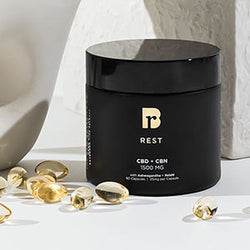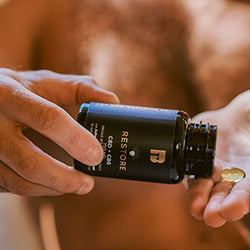IMPORTANT NOTE
All information, content or linked materials in this article is for discussion only.This is not medical advice and must not be relied on as such.
If you are showing signs of any symptoms associated with Coronavirus, follow the advice of NHS in the UK or the HSE in Ireland.
The information is not a substitute for professional medical expertise.

The spread of Coronavirus, or COVID-19, has dominated the news and social media feeds for the last weeks and months.
Fear follows the uncertainties as to how best we can stop or manage the spread of the virus, and how we can minimise suffering.
The World Health Organisation have reminded us that, ‘Every person has the capacity to contribute, to protect themselves, to protect others, whether in the home, the community, the healthcare system, the workplace or the transport system.’
As we take the behavioral steps advised by the NHS and HSE to help reduce the spread of the COVID-19 virus, can we boost our resilience and support our immune systems?
Our Immune System
We are continuously exposed to virus’, bacteria and germs from the food we eat, the air we breathe and the things we touch.
Some microbes are beneficial, others aren’t. It’s the job of complex network of organs, cells and proteins in our bodies to defends us against those that are harmful.
This immune system is influenced by genetics, but also by the germs we are exposed to over our lifetimes.
How our bodies deal with them depends on the integrity of our defences. An under- or over-active immune system can mean we are at greater of infections or illness.
Immune System Boosters - Nutrition
Lifestyle factor like stress, exercise and sleep have an important influence in the health of our immune system.
There is also a strong link between nutrition and a robust immune system.
Eating a diverse range of fresh and minimally processed foods is fundamental to optimum health and, in times of stress, can help our immune system if it is called into action.
Viral infection simultaneously increases the demand for micronutrients and causes their loss, which leads to a deficiency that can be compensated by micronutrient supplementation.
In response to this, a February 2020 review of COVID-19 treatment strategies in China proposes testing the nutritional status of infected patients before the administration of general treatments.
Below are some ideas that may help you support your immune system through the foods you eat.
Foods Rich in Vitamin A
Known as the ‘anti-infection’ vitamin, Vitamin A is essential to the general defence against pathogens of the innate immune system. It is also essential to the adaptive response against specific pathogens.
It is important to many of the body’s defences and some research suggests deficiency may lead to an impaired immune response.
Fish, eggs, liver and cheese are high in Vitamin A.
β-carotene, the natural pigments responsible for the bright yellows, oranges and reds in fruits and vegetables, converts into Vitamin A in the body. When taken at dietary levels, these antioxidants act against free radicals to strengthen the immune system.
Carrots, Sweet Potatoes, Peaches, Cherries and Red Peppers are good sources of β-carotene.
Boost your Vitamin C
Vitamin C is essential for your immune system and digestive health. During infections and stress, Vitamin C concentrations can decline.
Great food sources include lemons, limes, oranges and pineapples. Whole fruits, with fibrous pulp, are better than juices the digestion of the sugars is slowed.
Eat foods with Polyphenols
Polyphenols are micro-nutrients found in plants. They are rich in antioxidants and have important anti-inflammatory effects that support the innate and adaptive immune response. They also interact with gut bacteria to help reduce inflammation.
Foods with plenty of polyphenols include darker fruits like Cherries, Blueberries and Blackberries and vegetables like Spinach and Red Onions.
Drink Green Tea
Also a source of polyphenols, compounds in Green Tea may be helpful as immunomodulators for immuno-compromised patients.
Take Zinc
A popular supplement over cold and flu season, Zinc is important for maintenance and development of immune cells of both the innate and adaptive immune system.
Support your Gut Health
Our gut-microbiome plays a fundamental role in how our immune system functions. ‘Good bacteria’ in our Gastrointestinal System help us to both fight infection and to absorb nutrients.
Processed foods high in refined sugar can undermine good gut bacteria, allowing an imbalance of bad bacteria to weaken your intestinal health.
Probiotic supplements are widely available. Looks for products with 10 billion-20 billion CFUs (Colony Forming Units) per day for adults.
You can also add fermented foods like pickles, Kombucha and probiotic yogurts to your diet to promote healthy bacteria in your gut.
Echinacea food supplements
This coneflower has been used by Native Americans for centuries and is one of today’s most effective natural cold remedies.
Containing powerful immune stimulants, one study suggests Echinacea can cut the chances of catching the common cold by 58% and reduces the duration of the cold by 1.4 days.
Echinacea also may reduce viral colds and recurring infections.
A review of human research indicates Echinacea may have several benefits in the treatment of acute upper-respiratory infections.
Take Turmeric
Extensive research into this ancient key Ayurveda super spice has shed light on the compounds it possesses, and how they help support the body’s inflammation and immune responses. One compound, Curcumin, is a potent immunomodulator, anti-microbial, anti-viral, antioxidant and anti-inflammatory.
Full-spectrum Turmeric supplements have the added benefit of the root’s volatile oils, improving absorption of curcumin.
The importance of nutrition to a robust immune system is well evidenced.
Alongside sleep, exercise and managing stress levels, maintaining a balanced intake of fresh foods with targeted supplements where necessary will help support the immune system.
IMPORTANT NOTE
All information, content or linked materials in this article and on this website is for discussion only and is not medical or legal advice and must not be relied on as such. The information is not a substitute for professional medical expertise. Please see our full Disclaimer and Terms of Service for full details.







